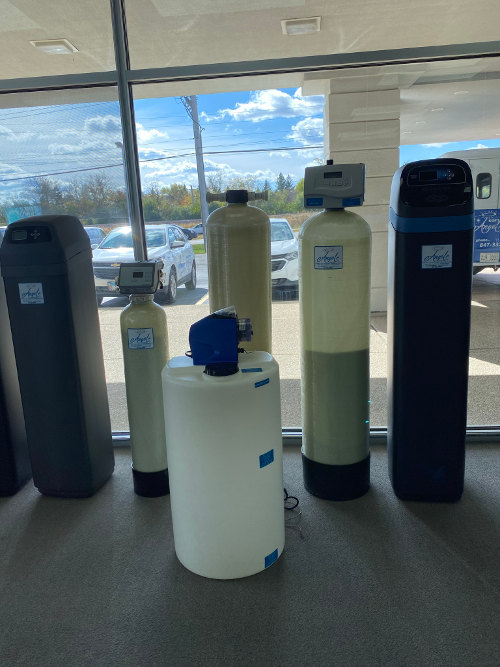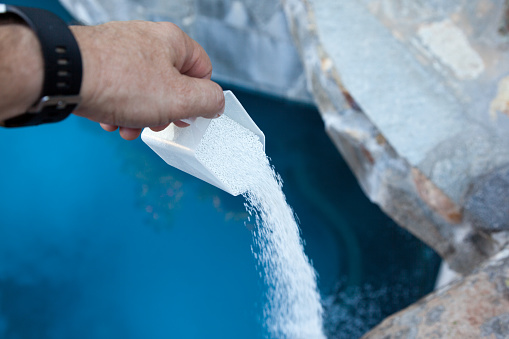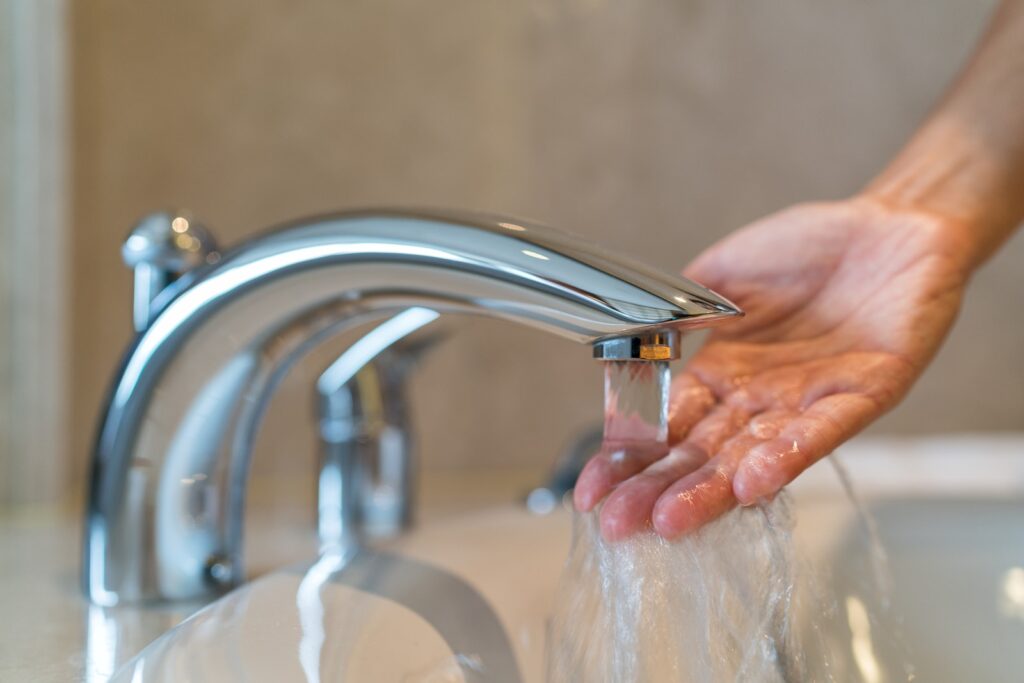Turning on a faucet to find that your well water has a rotten egg odor is both a common and unpleasant experience.
When gassy odors start to collect in a plumbing system, it’s normal to become concerned about whether your well water is safe to drink.
It is true that a sewage-like or rotten egg odor can be a sign of dangerous bacteria growth. So if the smell appears suddenly and without precedent, it’s important to get your well water tested.
However, the most common cause of a rotten egg smell coming from well water is sulfur gas.
Sulfur is a naturally occurring element that contaminates domestic wells in the form of hydrogen sulfide—a gas that’s created when organic matter breaks down in the earth. If your well is drilled into acidic bedrock (shale, sandstone, etc.) you’re particularly likely to experience sulfur contamination.
Here’s how to remove sulfur from a well water system to fix those unwanted rotten egg smells.
Rotten egg smell fix #1 – An air injection filter

source: easywater.com
When it comes to removing sulfur, the best well water filtration system will use an air injection filter. These devices add a pocket of air into the water supply which oxidizes any sulfur particles present.
Once oxidized, sulfide gas converts into an insoluble state that becomes much easier to screen from the water supply. Most injection systems include a mechanical filtration stage that contains a granulated media that captures the insoluble sulfur, as well as removes iron and other common contaminants.
The downside?
Air injection is a well-known and effective method for removing sulfur. However, introducing air pockets into water does raise the risk of encouraging the growth of certain types of bacteria.
Specifically, sulfur and iron-feeding bacteria can thrive in well water that contains both air pockets and sulfur or iron contamination.
The result? If your air injection filter isn’t powerful enough to remove the majority of the sulfur in your water, it may have the unintended consequence of stimulating bacteria growth.
On the other hand, as long as an air injection filter is able to sufficiently reduce sulfur levels, bacteria growth shouldn’t be an issue.
Rotten egg smell fix #2 – A chlorine injection filter

source: angelwater.com
Like air injection filters, chlorine injection filters aim to oxidize dissolved sulfur compounds by introducing a substance into well water. In this instance, however, chlorine is the oxidizing agent.
Chlorine injection filters contain a feed pump with a sensor or timer to monitor chlorine deposits. As above, they also feature a mechanical filtration stage made from activated charcoal or greensand to collect the oxidized sulfur as the water passes through.
The downside?
Chlorine injection filters tend to be more expensive and require more maintenance than air injection filters. Homeowners need to check the amount of chlorine in the feed pump and purchase refills when necessary.
That said, using chlorine as an oxidizing substance tends to result in more powerful sulfur filtration. Circulating a disinfectant substance through a plumbing system also inhibits future bacterial growth.
Rotten egg smell fix #3 – Shock chlorination

source: istockphoto.com
In domestic wells where the risk of sulfur bacteria growth is high, shock chlorination is another popular method of keeping microorganisms and rotten egg odors at bay.
Shock chlorination is a term used for a plumbing service where a professional circulates a very large amount of chlorine throughout a well and a plumbing system. Once the disinfectant is flushed out, it should protect the system from any microbial contamination for 6-12 months.
The downside?
This method is effective when the cause of rotten egg smells is a build-up of sulfur bacteria inside a well or at other points along with a home’s plumbing. However, it isn’t particularly effective at dealing with wells that continue to draw water with high levels of dissolved hydrogen sulfide.
Other rotten egg smell fixes
The three methods of sulfur removal above are among the most popular ways to solve rotten egg odors in well water. But there are also a number of other sulfur-removal methods that have their own pros and cons.
KDF filtration

source: pinterest.com
KDF cartridge filters oxidize sulfur and other naturally-occurring metals by using a granulated filter media made from an alloy of copper and zinc. When these metals come into contact with each other, a chemical reaction occurs that converts dissolved sulfur into an insoluble solid.
As a cartridge system, KDF filters can often be purchased for less than the injection system above. However, with yearly replacement cartridges needed, any initial savings are likely to be offset over time.
Redrilling
When rotten egg smells are a serious water quality issue, it may be possible to reduce them by redrilling a well. Shallower wells can avoid deeper reserves of shale or sandstone, and produce water with less initial sulfur contamination.
On the other hand, shallow wells bring their own contamination risks, meaning you might find yourself needing to employ other methods of water filtration.
Summary
- Rotten egg smells in well water are usually caused by sulfur contamination—either in the form of dissolved sulfur gasses or sulfur-feeding bacteria living in a well.
- To effectively remove sulfur from well water, dissolved sulfur needs to be oxidized. This is usually achieved by introducing an oxidizing substance such as air or chlorine.
- Oxidizing sulfur converts it into an insoluble form. Insoluble sulfur is filtered from water using a greensand media or mechanical filter.



